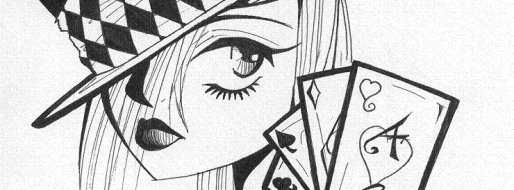ASUS breaks your ROG Ally if you don't pay $200 for warranty repairs: SCAMMING COMPANY!
Which includes the pricing model. Some regions even saw a price increase.
A lot of corps threw out the whole concept of a demand curve over the pandemic.
So happy that Persona lit a fire under their asses. They need it.
Best thing that could happen to the genre would be Metaphor selling 10mil copies.
So what's the top alternative? I've had quality issues with the last two Acer monitors I bought 😭
I think I need to check Nebuchadnezzar out.
Emperor: Rise of the Middle Kingdom is still my favorite in this genre by a mile. Dripping with cultural flavor, and there was really something about monument building in all of the games in this series.
Last time I dipped into Oxygen Not Included, the rocket program was enough to get me to push past self-sustenance. Unfortunately in the end, getting the details of the program right just annoyed me. I don't know if it's me or if the game's just not set up well to handle large-scale construction. Building fuel production ended up being more fun than actually building the rocket silos.
While I agree that seems the case, there likely has been a corresponding shift in niche communities, even if the effect is less measurable. I don't check in on my niche subreddits often anymore (I've fully moved over to here and Discord), but with some of them, their quality has dipped slightly. Possibly could be chalked up to continuing trends independent of the migration, though.
Smaller communities also require builders, so I'm sure the necessity alone has driven content quality on Lemmy.
Finishing up Eiyuden Chronicle: Hundred Heroes. I wish it were polished, but it's still thoroughly scratching the Suikoden itch.
One regime's political-dissident-by-speech is another's dissident-by-drug-addiction. America's "War on Drugs" was purely political disenfranchisement along racial lines, and it's a major reason why the US continues to have higher incarceration rates than the USSR had in many of the years the Gulag system was operational.
By the way, prison rape jokes have long been a part of those late night comedy shows, to give you an idea of just how ingrained the American prison culture is.
I see the contradiction. And I'm not saying the game was AAA-sized, although live service, multiplayer, or ongoing support are not requirements for the term. It's a budget classification. Hi-Fi Rush had 1,400 people in its credits.
My comparison to Balatro was more in the line of "Cleopatra lived closer to present day than the era the Great Pyramid was built." We're talking about massive gaps in scale, and gaming communities tend to have trouble reconciling that. Balatro is not Hades, Hades is not Hi-Fi Rush, Hi-Fi Rush is not Starfield.
Xbox buys talent, mismanages it in search of impossible scale, and cuts it loose - be that the 20-year experts of Fable, or the battle-scarred makers of Dishonored, or the invigorating new generation behind Hi-Fi Rush.
Talking up the demerits of capitalism in the massive gaming industry has been more common as of late (perhaps especially so on Lemmy), and I do think there is nuance in that conversation.
There's no reasonable nuance here. Microsoft clearly wants insane return on investment from their studios, and I don't see how that leaves room for the art of video game design.
There have been a lot of good responses to the studio closures and good articles written, but this is not one of them.
Hi-Fi Rush was not a small project, and putting it in the same bucket as Balatro and Manor Lords is outright bizarre. It's far closer to AAA budget scale than it would be solo/small indie projects.
Edit to add:
I don't know how the fact presented here ended up being controversial somehow, but don't take my word for it. Here's a quote from John Johanas, Hi-Fi Rush's director:
It was supposed to be a small project from Tango. And people probably see it as this weird, sort-of AA title. Or people are like, “Oh, they made a nice indie game.” This ain’t no indie game. Obviously, I can’t say how much it cost, but it was not a cheap game to make.
And lead programmer Yuji Nakamura:
For the first two years I would say it was a small project. But what John wanted to make was not a very small thing to do. We needed to get more and more people to help. In my mind, small projects would be maybe 20 to 30 people for two years. We ended up developing for about five; I wouldn’t call it a small project at all.
Hi-Fi Rush: From a Little Idea to a Very Big Surprise – The Exclusive Oral History
Local multiplayer--especially couch co-op--is a lost art. I definitely miss it.
It's not just that. 2023 was a very good year for gaming, right? A lot of the heavy hitters last year were from long-running series. Look and see how many of those series had either their genesis or consensus fan favorite entries in that time period.
Not only that, Steam, Unreal Engine, e-sports, the mainstreaming of game mods, and even AAA development itself all trace back to innovations from that time. Historically, it's a massively important time period for video games.
It's an overlap between the back end of the fourth gen (aka 16-bit) era for consoles and then a full pivot to PC gaming in the years after. I really didn't like the move to early 3D on consoles with their abysmal framerates and load times. I felt then (and still think today) it was a generation too early.
Marking the starting point is easy: 1994. An insane year for the SNES, Donkey Kong Country, Final Fantasy VI, Mega Man X, and Super Metroid all came out in North America that year. That run continued on the SNES until Yoshi's Island in 1996. I did pick up a PlayStation but I wasn't thrilled with it. There are some personal favorites from this time, too, but they still had the sprite art I was desperately missing: games like Final Fantasy Tactics, Suikoden, Symphony of the Night, Xenogears.
I'd been a PC gamer for a while, but I started moving more towards the platform with Blizzard's ascendancy with Warcraft II in 1995 and Diablo in 1996. I'd finally get a dedicated GPU in 1998, and what a year for it: Half-Life, Thief: The Dark Project, Unreal, Tribes, Freespace. The less-demanding games of the year were no slouches either: Starcraft, Baldur's Gate, Fallout 2. With a similarly impressive console lineup, it's no surprise many consider 1998 the best year ever for video games.
The endpoint is harder to pin down. Maybe the death of the space sim genre with Freespace 2 in late 1999, or Blizzard's last landmark game before the MMO era, Diablo II in mid-2000. At the very latest, a new era for me definitely began with the release of the Game Boy Advance in 2001, where I shifted mostly to PC + handheld platforms, where I'm still at today.
I wasn't big on it at release, but a lot of people were. In hindsight, there was still too much of the earlier DNA in the game: a lot of people just talking at you, and otherwise mostly a focus on driving around and shooting things. It wasn't engaging enough for someone like me that mostly played RPGs.
The move to 3D was impressive, though, and a necessary step for not just the series but a lot of games of the generation. Now that they had a big hit, they were able to take big swings by bringing in Ray Liotta and all the elements to make an amazing period piece with Vice City.
I keep a gaming journal, but it's only for thoughts afterward. I keep it much simpler than I used to, as there's a point where writing at length becomes work, and gaming shouldn't be work. That's the same reason I don't keep a backlog. In my longer posts here and elsewhere, it tends to just be stream-of-consciousness writing derived from those journals entries, just cleaned up a little bit.
As for note-taking, I will almost never take notes on opinion/criticism during a play. Pretty sure that again, it'd feel like work if I took notes. I also rarely write about games I don't finish unless I've played most of them (I tend to bounce off a lot of games lately). Other than that, my journal has the occasional random thought on larger industry trends, or a quick sort, like a toplist or the latest tier-making meme I saw. It's interesting to see how my tastes change over the years.
The first Witcher encapsulates Geralt's (many) sexual conquests in collectible cards. And almost none of the encounters have any bearing on the plot. Having a hard time not calling that exploitative.
Much of what's going on, especially lately, is simple xenophobia. There are arbitrary restrictions on what can be sexualized when Asian character designs are used.
Fascism's quite profitable until they start rounding people up.
Well... I have my issues with Torna. If you're someone that likes sidequesting, you'll probably like it. I personally don't (I think sidequest quality is a failing of JRPGs at large), so I was really frustrated with how many I was forced to do. However, I did enjoy the story and I wish I'd had more time with the characters.
And yeah, the settings for Xenoblade are phenomenal. It's kind of a simple idea but it works out so well.


I don't have experience with their systems, but I had to go back to the store twice for an Acer monitor. First monitor had a dead HDMI port, second had a gap in the chassis at the top. Don't know why I didn't just go with a different one after the second replacement; it would end up developing a line of shadowing after about 18 months.